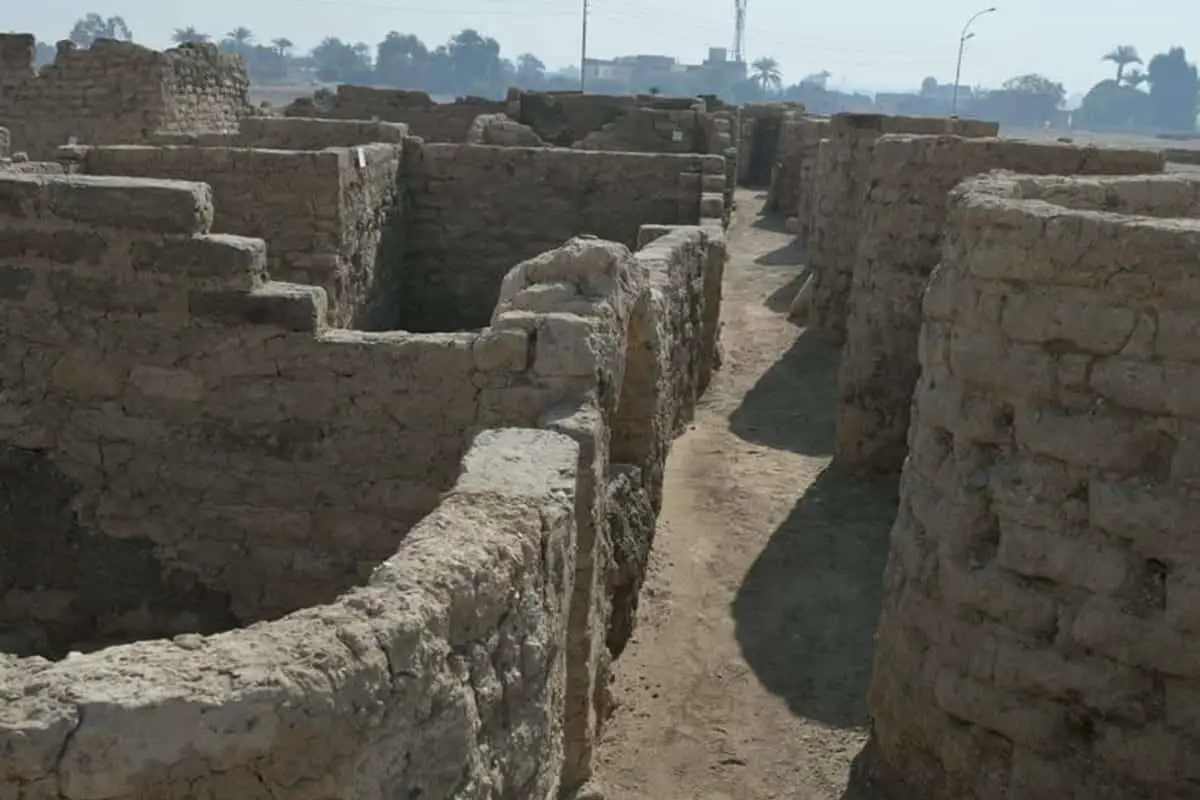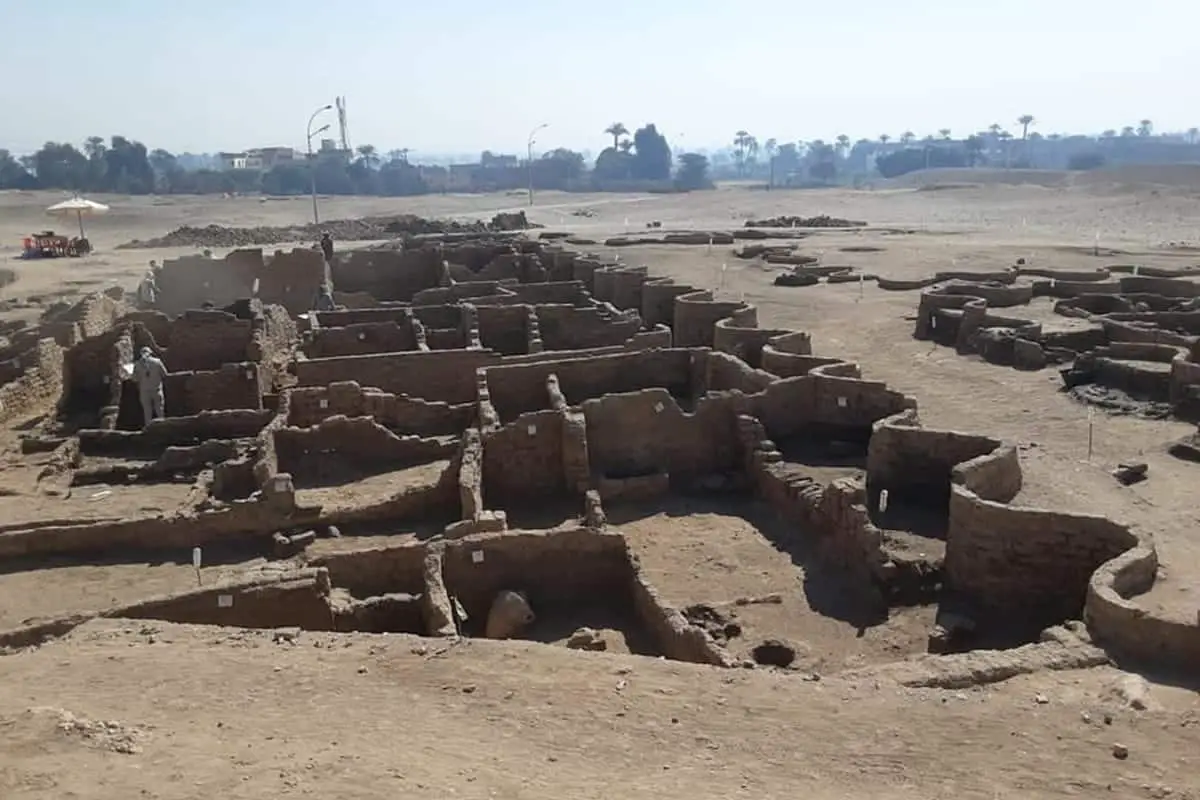Archaeologists have announced the discovery of a 3500 years old Ancient Egyptian city near Luxor in Egypt.
The Egyptian Expedition under Dr Zahi Hawass made the discovery whilst excavating an area between Rameses III’s temple at Medinet Habu, and Amenhotep III’s temple at Memnon in search of Tutankhamun’s Mortuary Temple.
The city dates from the period of Amenhotep III (also known as Amenhotep the Magnificent – the ninth pharaoh of the Eighteenth Dynasty) based on a large number of archaeological finds, such as rings, scarabs, coloured pottery vessels, and mud bricks bearing seals of King Amenhotep III’s cartouche.
Excavations which first started in September 2020 have revealed several streets flanked by houses that extend all the way to Deir el-Medina, the village of artisans who worked on the tombs in the Valley of the Kings. Many of the houses have relatively intact walls, whilst the interior contains everyday tools and domestic items.
Several districts have been identified, with a southern area being used for the storage and production of food items, a residential and administrative district, and an industrial district for the manufacturing of mud bricks and decorative jewellery.
One notable find is a storage vessel containing 10kg of dried meat that has the inscription: “Year 37, dressed meat for the third Heb Sed festival from the slaughterhouse of the stockyard of Kha made by the butcher luwy.”

Another discovery is a mud seal inscription that reads: “gm pa Aton” – meaning “the domain of the dazzling Aten”, the name of a temple built by King Akhenaten at Karnak.
Betsy Brian, Professor of Egyptology at John Hopkins University in Baltimore USA, said ‘The discovery of this lost city is the second most important archaeological discovery since the tomb of Tutankhamun”.
“The discovery of the Lost City not only gives us a rare glimpse into the life of the Ancient Egyptians at the time when the Empire was at his wealthiest, but it will help us shed light on one of history’s greatest mystery: why did Akhenaten & Nefertiti decide to move to Amarna,” Brian added.
Ministry of Tourism and Antiquities
Header Image Credit : Ministry of Tourism and Antiquities





